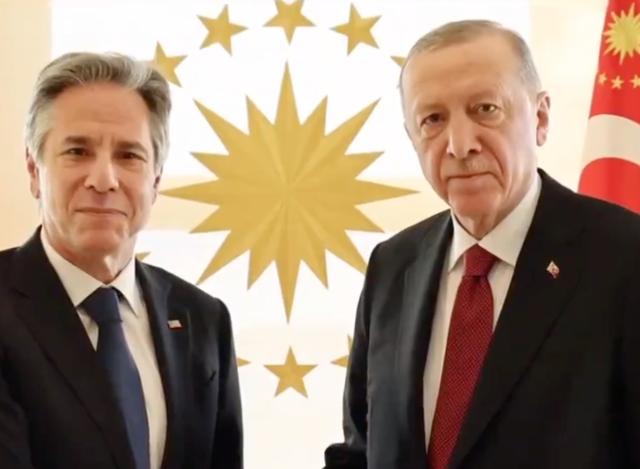Jordan's King Abdullah, in a recent meeting with US Secretary of State Antony Blinken, expressed deep concern over the ongoing military actions in Gaza by Israel, emphasizing the disastrous consequences that could ensue. The king stressed the pivotal role the United States must play in pressuring Israel towards an immediate ceasefire in Gaza.
Blinken, during his visit to Amman as part of his extensive Middle East diplomatic efforts, held discussions with King Abdullah II and Foreign Minister Ayman Safadi. This visit, Blinken's fourth to the region in three months, is a crucial part of his strategy to de-escalate tensions following Israel's military operations in Gaza, which have resulted in thousands of Palestinian casualties, including civilians due to Hamas's usage of human shields, since October 7.
Jordan’s King Abdullah on Sunday warned US Secretary of State Antony Blinken of the “catastrophic repercussions” of the continuation of Israel’s military campaign in Gaza, a palace statement said.
— Business Recorder (@brecordernews) January 7, 2024
Read More:https://t.co/KBO0e8LcGT#IsraelGazaWar #KingAbdullah #Jordan… pic.twitter.com/B2hVFRfe6x
Key elements of Blinken's agenda include altering Israel’s military approach to reduce civilian harm, facilitating the delivery of humanitarian aid to Gaza, and formulating comprehensive reconstruction plans for the region post-conflict. These plans are particularly vital given Gaza’s dire situation, severely impacted by continuous Israeli air and ground assaults.
In addition to his meetings in Jordan, Blinken engaged in critical talks with Turkish and Greek leaders in Istanbul and Crete. His discussions in Jordan centered on garnering support for U.S. initiatives to mitigate fears of the conflict escalating into a broader regional crisis, enhancing aid to Gaza, and preparing for the end of hostilities.
BLINKEN’S DIPLOMATIC TOUR AMID CONCERNS OF ESCALATION IN THE MIDDLE EAST TENSIONS
— Emerald Chronicles (@emeraldnewscast) January 7, 2024
Antony Blinken, the US Secretary of State, aims to prevent the escalation of the Gaza conflict. Today, he embarked on a week-long diplomatic tour, starting with a visit to Jordan, with the primary… pic.twitter.com/MBYAz75A4T
Jordan, along with other Arab nations, has vocally condemned Israel’s military actions in Gaza but remained silent on calling for Hamas to release the remaining Israeli hostages or even surrender. During conversations with Turkish President Erdoğan, who supports the Muslim Brotherhood terror group Hamas and has his own dreams of reclaiming Jerusalem for his own caliphate, Blinken emphasized the importance of managing the conflict, securing hostage release, bolstering humanitarian initiatives, and minimizing civilian casualties. He acknowledged Turkey's potential influence in post-conflict Gaza in terms of governance, security, rebuilding, and peace efforts.
These discussions occur against a backdrop of Erdoğan's sharp criticism of Israel’s conduct in Gaza and his previous refusal to meet with Blinken, protesting U.S. support for Israel. Reports also say Erdoğan reached out to the Vatical to propose that he be named by the Catholic Church as the "protecterate of Gaza and Jerusalem" an old title, mostly ceremonial but relevant to his longstanding plan to rebuild an Islamic caliphate.
Blinken in Jordan seeking to avoid regional war - Breitbart https://t.co/O6qLdNN9nc via @BreitbartNews
— Elena (@helen44767171) January 7, 2024
Blinken also addressed the strained US-Turkey relationship, with tensions extending beyond the Gaza issue to NATO policies and other international concerns. Notable among these is the delay in the U.S. approving a significant F-16 fighter jet deal with Turkey, contrasting with U.S. expectations for Turkey's ratification of Sweden's NATO membership.
After his visit to Amman, Blinken's tour will include stops in Saudi Arabia, Egypt, Qatar, the UAE, Israel, and the West Bank. His meeting with Turkish leaders underscored the urgency of Middle Eastern countries using their influence to restrain the Gaza conflict and prevent further violence.
This series of diplomatic engagements follows recent hostilities between Israel and Hezbollah, with the latter responding to Israel's assassination of a high-ranking Hamas official in Beirut.


